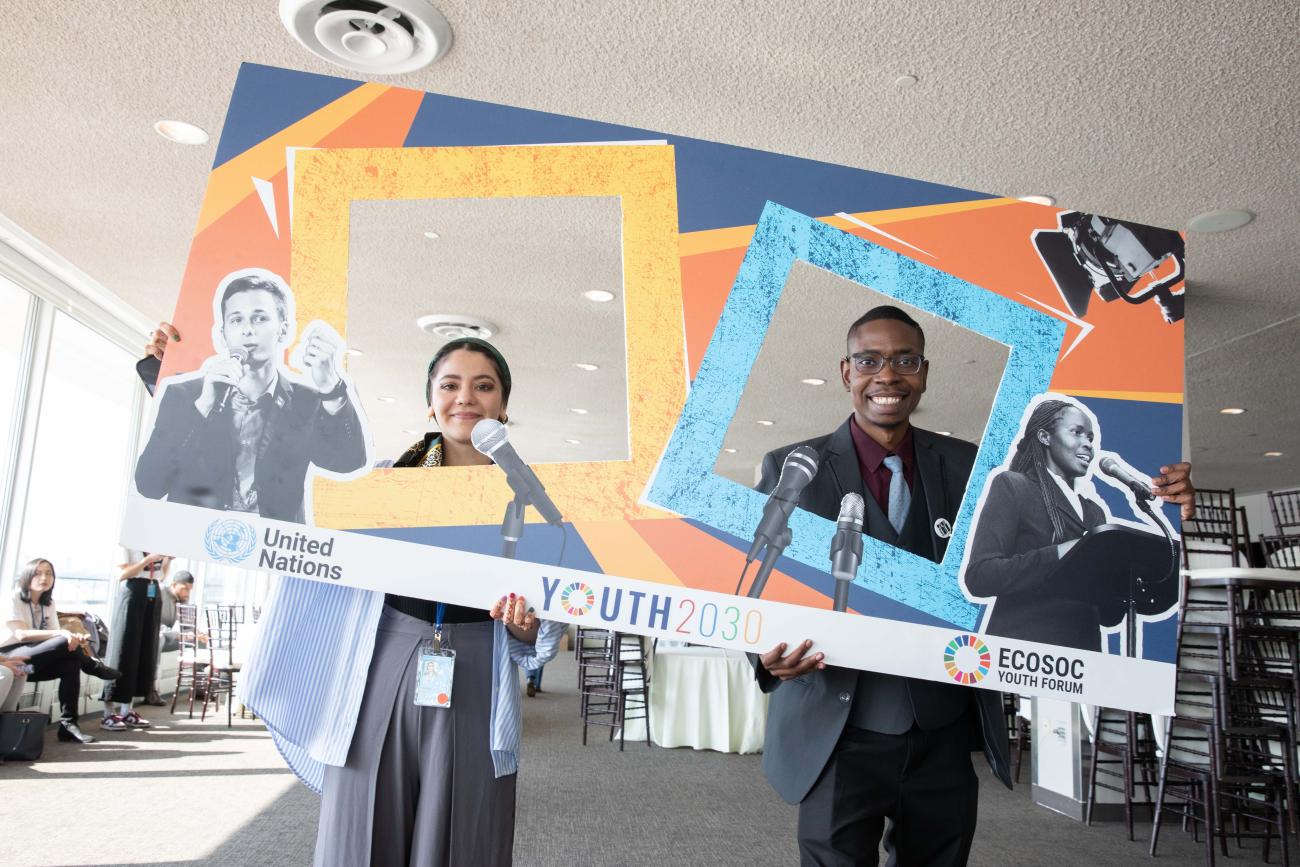Standing with and for young people: how the RC system is uplifting the next generation

Transforming the world into a fairer, greener and more sustainable place for present and future generations can only be done by engaging with and listening to some of the most powerful agents of change we have: young people. As noted in the UN’s Youth2030 Strategy - the first-ever UN system-wide strategy on youth – “young people constitute a tremendous and essential asset worth investing in, opening the door to an unparalleled multiplier effect.”
For the UN Development Coordination Office, the ECOSOC Youth Forum this week offers an important moment of reflection. Where do we stand in progressing the SDGs ‘with and for Youth’? How are we amplifying the voices of young people and supporting their leadership? And, crucially, five years into the reforms of the UN Development system, how well are we able to use our network of UN Resident Coordinator Offices across the world to help advance the Youth2030 Strategy?
We are beginning to make a difference. As captured in the recently published 2023 Report of the Chair of the UNSDG on the Development Coordination Office, young people have become an increasingly important part of collective United Nations development planning and programming. For example, in the 104 new programmes of cooperation between the UN and governments (known as UN Sustainable Development Cooperation Frameworks) are now being implemented, young people are acknowledged to be central for achieving inclusive, sustainable and stable societies by 2030.
For example, young people’s inclusion in the UN’s ‘Common Country Analysis’, which informs the UN’s offer in each country - has increased to over 90% of new ones ensuring youth consultations which improved understanding of the multiple forms of exclusion young people face and the barriers preventing their meaningful participation in processes and institutions of governance.
Looking beyond the numbers, we can point to numerous examples from the ground of how our Resident Coordinators are ensuring young people’s active participation in determining joint priorities between the UN and national authorities.
In Thailand for example, the ideas and advice from the Youth Panel for the Sustainable Development Goals (SDGs) proved instrumental to the Resident Coordinator and the UN Country Team and helped inform the development of the UN Sustainable Development Cooperation Framework. Today, the panel continues to shape the implementation of development programming, supporting the UN Country Team to tailor advocacy campaigns to raise awareness of youth on the SDGs.
In Albania insights from the Youth Advisory Group have not only helped shape the design and development of the new Cooperation Framework but are also being used in its implementation. One of the early successes of UN programming on youth issues in Albania, is a partnership forged between the UN Country Team and the Tirana European Youth Capital to jointly host more than 40 events with and for youth in 2022.
Partnerships like this are key to improving the implementation of the Youth2030 Strategy on the ground, and empowering young people as they grapple with the inequalities exposed by the COVID-19 pandemic, rising costs of living due to the war in Ukraine and the ongoing climate emergency.
Investing in young people is the only way to navigate these uncertainties and ensure that every country reaches its development potential and meets the targets set out in the 2030 agenda.
For Bangladesh, and other countries which are set to graduate from the Least Developed Country Status, leveraging the potential of young people and learning from their insights is particularly important to ensuring that no one is left behind during this transition process.
In Tajikistan, the UN Country Team’s investments in young people are helping address a number of challenges, from building capacity to counter violent extremism, facilitating community dialogue through theatre and arts, to ensuring that young people are front and center in the country’s Voluntary National Review Process; a key mechanism to track national progress towards the Sustainable Development Goals.
With only seven years left to implement the Youth2030 Strategy and reach the wide-ranging targets of the 2030 Agenda, the continued leadership of Resident Coordinators in supporting national governments achieve the ‘SDGs with and for Youth’ will be key.
To maintain this momentum, there is more which can be done by the UN development system; including strengthening global peer exchanges with a focus on lagging Youth2030 indicators, monitoring how youth issues are reflected in our country analysis and Cooperation Frameworks, creating more open and diverse platforms for young people’s voices to be heard and above all, ensuring that it is youth-centered solutions which drive our UN Country Teams towards the 2030 milestone year.
This blog was written by Deputy Director of the UN Development Coordination Office Rosemary Kalapurakal.













